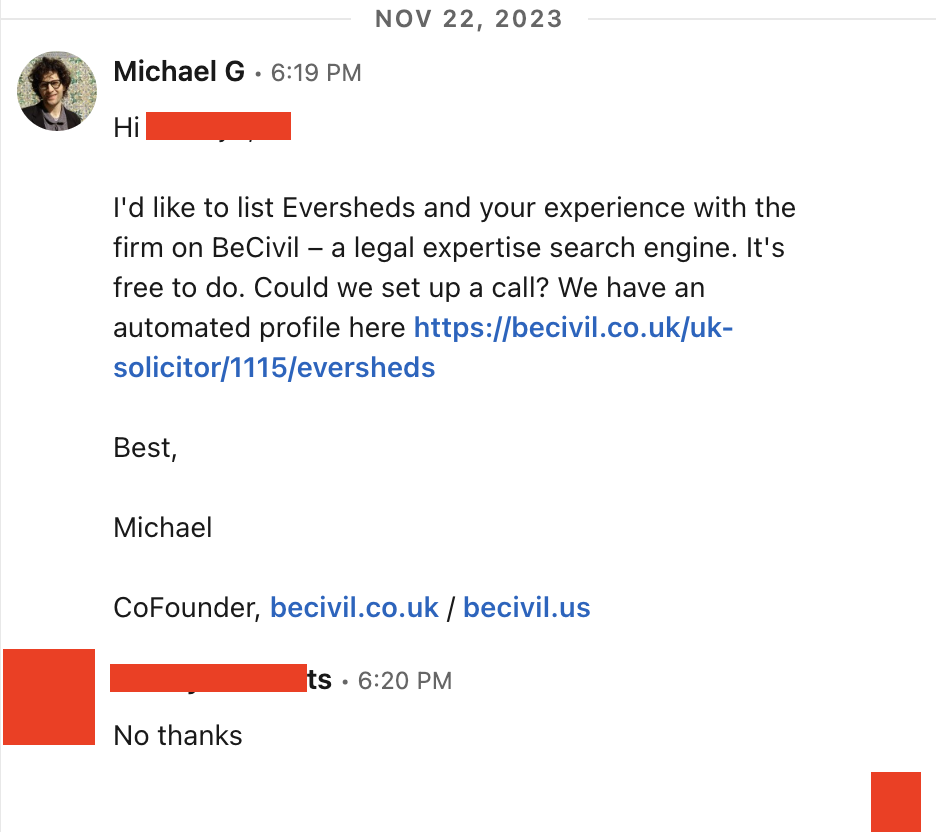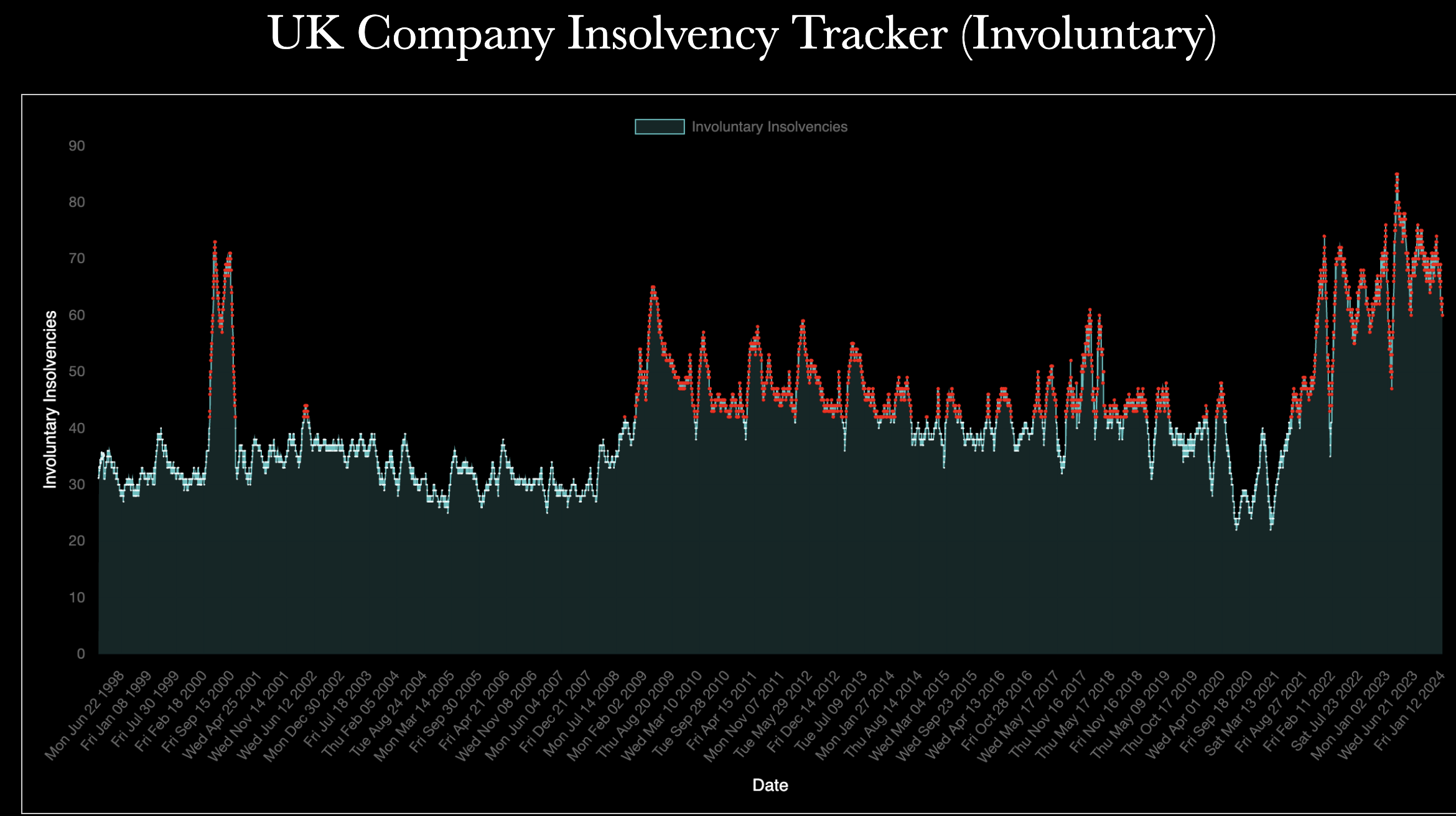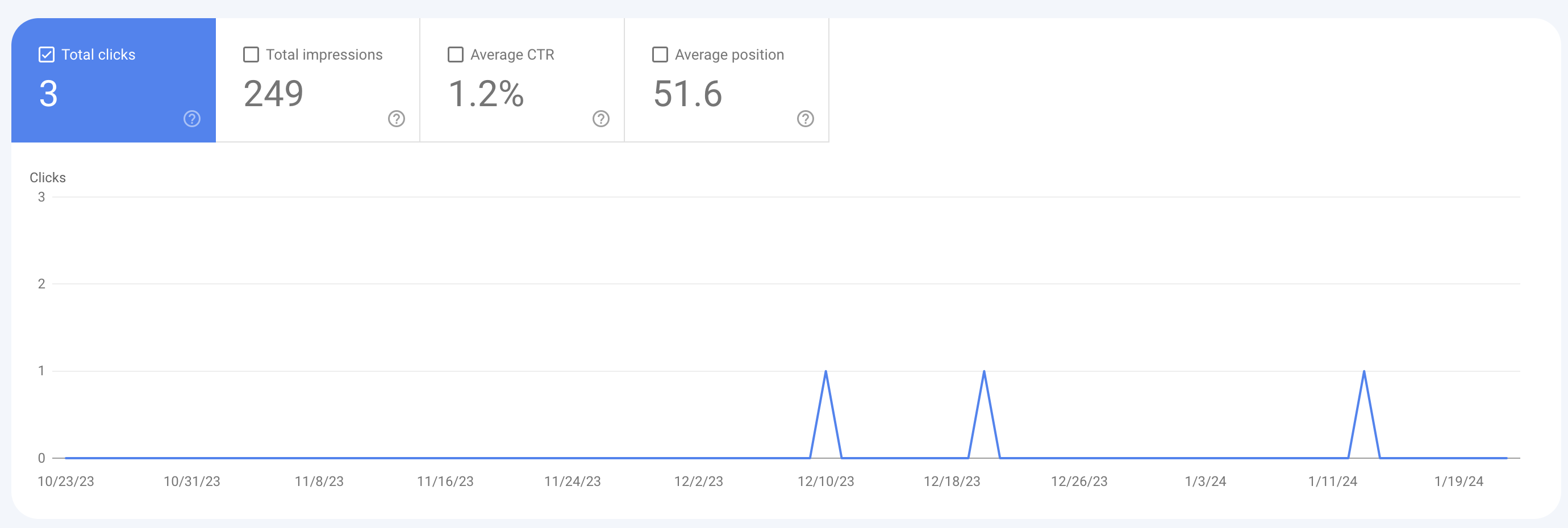My first job out of university was running my own ‘legaltech’ company. I was fortunate to raise a small venture round for it. I got into more or less every national newspaper and radio show – even some popular TV programmes.
Ever since starting that company I have termed myself loosely as an ‘entrepreneur’, even though on conventional accounts I am not a particularly successful one.
To my mind a successful entrepreneur is someone who has exited a company with some substantial profit behind them. Or at the very least grown something out of obscurity into something with customers, that solves a problem of some sort. Preferably getting traction without the help of venture capital money.
I have no specific issue with venture money, but if you have $1m to spend on marketing, it is inevitable you have some capacity to reach people. It seems getting some customers in this scenario is less impressive, more inevitable.
Some trusted advice people use (in the land of technology startups) comes from Y-Combinator. They say things like: ‘build things people want’, ‘speak to customers’, and whatever you do, don’t be one of those engineers who make a ‘solution looking for a problem’.
This is all very agreeable advice for those wanting a clear path to revenue, and hopefully success.
But surely there’s a catch.
Say I am motivated with the idea of improving peoples’ fitness. Not just anyone, but specifically those who are very out of shape (and feeling beat up about it). Say I have a vision for how that can come to be (let’s say some personalised nutrition programme). Let's say I try and try, but this business does not work.
Along the way I then discover there is a related problem, adjunct to the one I was building. Let’s say the fitness fanatics want some customised vitamin pills, tailored to their blood profiles. All the evidence shows they are the ones with the money and the desire to buy.
But I had set out to help a different sort of person – those who are out of shape. Should the allure of traction and money take me off that path?
Naturally this depends whether one is on a mission to do 'X' – or whether one is happy with some business serving someone's need.
While doing the legaltech company – which was designed to fix problems affecting the disadvantaged – it became apparent at some point it wasn’t likely to work. But some law firms showed a real interest in having some custom software built, to manage their clients.
That could have been built and sold, and at the time, and established my name in the English and US market as a software provider for lawyers. Who knows what that may have become – maybe government contracts. I was bumping into enough officials at the time – politicans, a Lord, judges, officials at the Ministry of Justice, the Government Courts Office, and some US based litigation funders.
But I was interested in a problem that mattered to me: using law to help the disadvantaged.
Building and maintaining CRM software has nothing to do with the disadvantaged. It keeps the normal legal machine running, doing nothing to progress the original problem. Maybe I get some money in the process. Was my heart in that?
Jump forward ten years and I am now a hybrid. I still do what I find interesting, delightful or funny. But at least now I attempt to think out a route to monetisation or exit strategies.
Because I am not optimising for that, I do not make profits most of the time – I put money in, and nothing comes out. So I feel like I am not an entrepreneur. Maybe I am, but just not a particularly successful one.
Let’s run with some examples
Flamenco With Rafael
Rafael is a friend and master of his craft, as a lifelong flamenco guitar player. He played at my 30th birthday. We produced a course in France as an introduction to his craft, available at Flamenco With Rafael. When it came to promoting the course, we had no pre-existing audience to sell to. Like most low-ticket courses, adverts are not a profitable play.
What do you do in that situation? There’s search, but that is a medium-term play, and search demand for flamenco is very niche. The site is still growing today, but realistically the site does not drive enough sales to support even a part-time role. A fascinating and lovely project, but not one viable to support someone. And surely being able to support someone, or a team, and give them good, meaningful work conditions beats otherwise an unknown artsy project that remains obscure?
BeCivil
Are lawyers any good? How would you even know? The reality is, no-one knows. I worked briefly at White & Case in London, looking at financial regulation, MiFID II and FSMA and all these long financial laws that run to hundreds of pages. Having worked with the in-house team I can say they seemed top of class to me.
But would an outsider know what to look for? How would the in-house counsel for a firm looking to go public choose between them, and say, Allen & Overy, when picking a firm for a $200k contract?
I was quite interested in the datasets behind lawyers so began compiling the data for what became BeCivil.
The main idea is to list the experiences lawyers have, on public profiles. Rather than saying ‘we’re experts in construction law’, they could showcase (within the remits of confidentiality) work a firm has actually done, eg here.
But are lawyers interested in it?

Doesn’t seem like they dig it. But I certainly into it.
In recent months I began digging into extra-legal data – that is, data about law and lawyers – but not about the lawyers themselves.
BeCivil’s dataset has managed to uncover lots of interesting things that (to my knowledge) have not been researched before, such as the chances of winning a case, how the gender roles of the judiciary and advocates are changing over time, and which government department gets sued the most.
Here’s a lovely graphic showing the universe of lawsuits surrounding the NHS, for instance…

And here’s a graph of daily insolvencies in the UK

All very interesting. BeCivil is not a mission-driven project, but was borne out of a curiosity. As a result I am more amenable to pivots based on conversations as to what people would find useful.
Last week one came up on the matter of automating regulation insights. So that’s something. Not the original idea. But something that may make someone’s life easier, which is in itself a beautiful thing.
Yachts The Point
Originally a filmmaker friend over at Self Studio proposed some software that could take screenplays and read them out, to save the hassle & expense of hiring actors to do reads for every iteration of a script. I built the MVP and the writers didn’t seem so interested.
While building the MVP I often sat by a cafe, on the sea, next to a docked superyacht called the Lady Moura and another called the Kaos.
I thought it would be funny to use the screenwriter software to voice conversations about philosophy, justice, truth and society from the perspective of these two superyacht owners. And so I came up with Yachts The Point.
To give it a contemporary ring, I task them to discuss contemporary issues only – the ones that make the front page of the news. You can see one of the videos here, discussing Boeing’s recent window problem:
As this software is agnostic to who does the talking, and about what, it did not take long to extend it to generating Yes Minister scripts (an old popular English sitcom) based on also the headlines. And the crazy thing is that it’s actually funny, sometimes.
Alas YachtsThePoint remains obscure; I do not promote it; to promote it seriously would require some proper thought about playing with the viral mechanics of TikTok.
My House History
Most of us live in a home, or flat (renting or owning). But it’s crazy to think that other people have lived in the same place in the past – lives have been lived, and maybe families raised, lives spent, in your living room, bedroom and kitchen (or for new builds, maybe on the land).
This was a two-day MVP to sell people a report giving them the history of their house.
And it worked.
I had purchasers, profitable from the outset.
But I was missing too much data to build meaningful stories or reports, so most customers were refunded.
Programmatic SEO at Scale
As I know SEO and I can write software, why not just fill up unlimited websites based on low competition high volume keyword demand based on GPT4 prompting? I’ve met a few entrepreneurs with 7-figure businesses based on SEO, with small teams overseas to manage the content writing process.
Some domains certainly get clicks, and others do not. It seems to depend – below are two websites involved in programmatic SEO with low volume output, just to quickly dip my feet into viability.


All these ideas are fun. But releasing things that do not work, and bootstrapping them, can get boring. Each project that does not work, on some unconscious level, affects my perception about what is possible online. Until I meet friends who are doing well on something not too complicated :)
